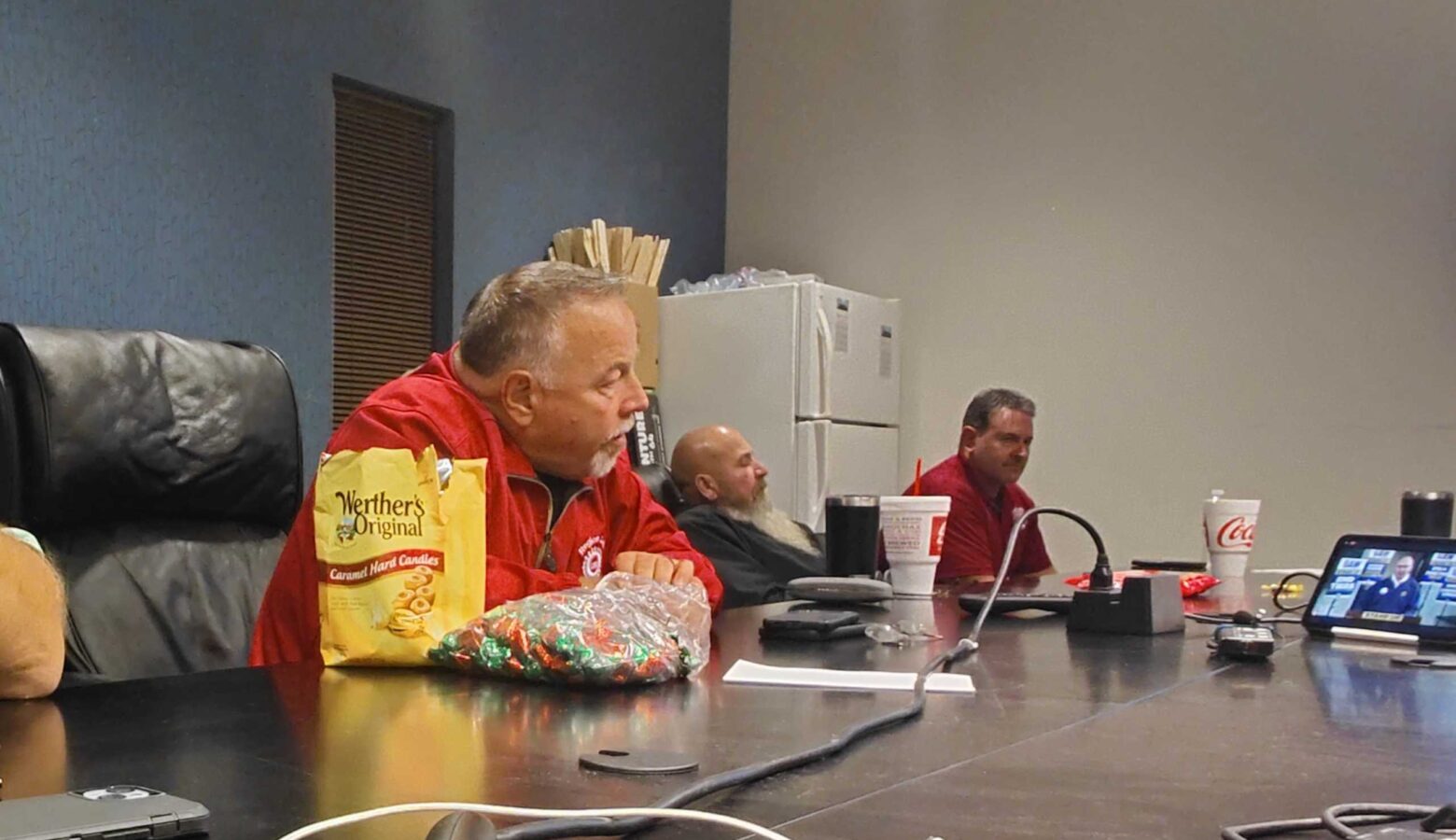As union contract expires, Indiana’s UAW autoworkers aren’t ‘standing up’ to strike – yet

The United Auto Workers union contracts at General Motors, Ford and Stellantis expired Thursday night without a tentative agreement on a new contract in sight. Some UAW workers are striking, but not in Indiana.
The UAW and the “big three” auto manufacturers remained far apart on a few key issues in new four-year contracts as the deadline lapsed Thursday. But as part of the UAW’s new “targeted” strike strategy, only three assembly plants began striking after the deadline: a Ford plant in Michigan, a General Motors plant in Missouri and a Stellantis plant in Ohio. The UAW may decide to call on workers in Indiana plants to join the strike to apply pressure on the companies as negotiations continue.
Many local leaders didn’t know whether their members were going to strike until UAW President Shawn Fain announced the first “wave” of strikes in a Facebook livestream two hours before the deadline.
“This strategy will keep the companies guessing. It will give our national negotiators maximum leverage and flexibility in bargaining. And if we need to go all out, we will,” Fain said during the livestream. “The locals that are not yet called to join the stand-up strike will continue working under an expired agreement. No contract extensions. Though the contract is expired, most of your contract is still in effect. Management can not change terms and conditions of work in your workplace.”
Garry Quirk is president of UAW Local 685, which represents several workers at Stellantis plants in Kokomo. He said many of his members were fired up and ready to hit the picket line leading up to the deadline.
“We’ll go in [the plants] and tell the membership what’s going on and try to calm things down,” he said moments after Fain’s announcement.
Quirk said he supports the “targeted” or “stand-up” strike strategy because it allows the union to apply pressure without depleting its funds on an all-out strike at all three companies.
“Nobody benefits from a strike. If we don’t strike we’re good with that. The only one wanting to strike is the company,” he said. “If they don’t come to the table, there will be a second wave, and a third, and a fourth, and fifth. So it’s up to the company.”
Join the conversation and sign up for the Indiana Two-Way. Text “Indiana” to 73224. Your comments and questions in response to our weekly text help us find the answers you need on statewide issues.
The work stoppage at the Stellantis plant in Ohio might affect Local 685’s workers eventually, Quirk said. The local represents workers at plants that produce transmissions and other parts that are assembled at the Toledo plant now on strike.
“The Toledo assembly plant goes down, they don’t need transmissions. So, yeah, I mean, eventually it will affect us,” he said.
General Motors’ latest public contract proposals included a 20 percent wage increase over the course of the contract. GM CEO Marry Barra called her company’s Thursday offer “historic,” according to the Detroit Free Press.
But the union is demanding 40 percent wage increases. Still, that 20 percent offer is closer to UAW’s demands than the 16 percent GM offered a week prior.
Stellantis’ public offers have been further from union demands. That company’s latest proposal included a 17.5 percent wage increase over the course of the contract, according to the Associated Press.
Stellantis posted a statement to its website after the targeted strike at its Toledo plant began: “We are extremely disappointed by the UAW leadership’s refusal to engage in a responsible manner to reach a fair agreement in the best interest of our employees, their families and our customers. We immediately put the Company in contingency mode and will take all the appropriate structural decisions to protect our North American operations and the Company.”
UAW Local 440 represents workers at a GM plant in Bedford, Indiana. President Derek Cronin said that the strike announcements simultaneously create “a little bit of anxiety” for his members and also give them a sense of relief because they won’t lose access to wages, at least for now.
“At any point, depending on how negotiations are going, we could get called and told to walk our people out on strike. That is again part of the surprise to kind of keep the companies off their game, to hopefully get us the contract we deserve and working people deserve,” Cronin said. “We’ve been doing preparations for the expiration of the contract for at least four or five months. So we were ready for tonight. And if they call us whenever they call us, we’re going to be ready for that moment, too.”
WBOI’s Tony Sandleben and WFIU’s Ethan Sandwiess contributed reporting to this story.
Adam is our labor and employment reporter. Contact him at arayes@wvpe.org or follow him on Twitter at @arayesIPB.

